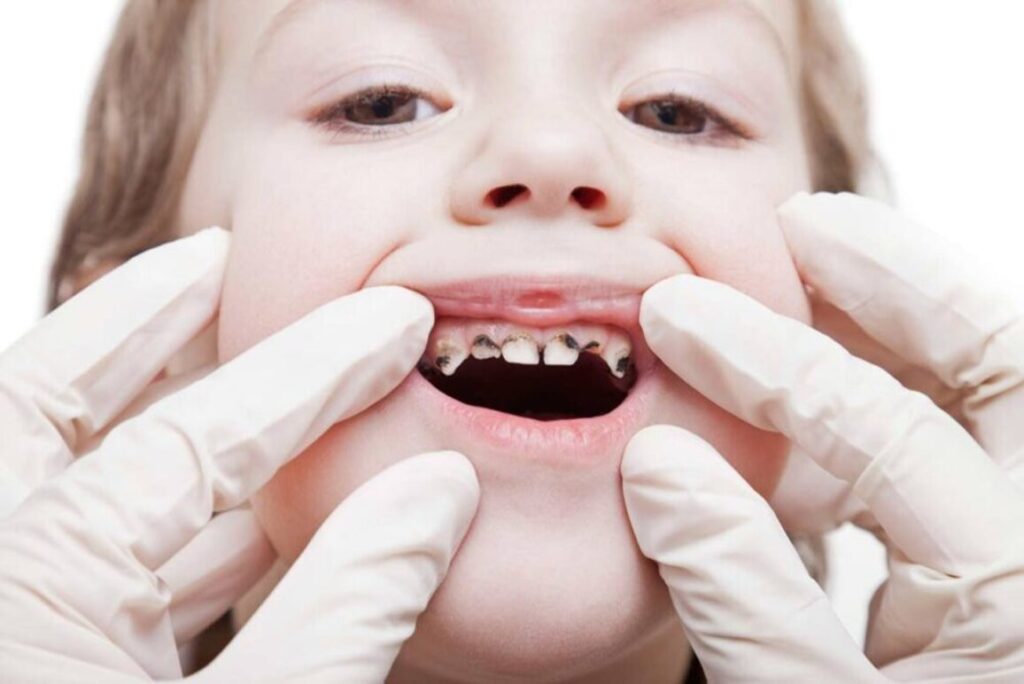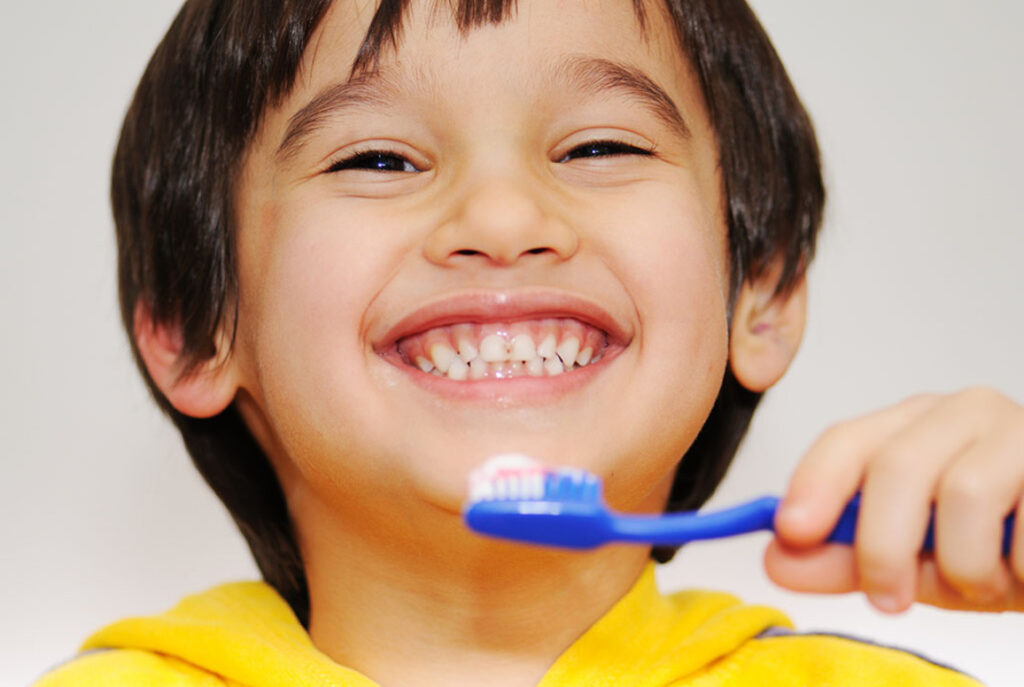Rotten teeth in children are a common concern caused by poor oral hygiene, sugary diets, and untreated cavities. Early signs like tooth discoloration, pain, or sensitivity should not be ignored as they can lead to infections or tooth loss. Visiting a children’s dentist near me, like the experts at Pathak Dental Clinic, ensures timely diagnosis and treatment. With a trusted Pediatric Dentist near me, children receive gentle, specialized care to prevent and treat dental decay effectively. Prioritize your child’s oral health today with regular check-ups and preventive care at Pathak Dental Clinic.
Poor dental hygiene can put you at risk for Rotten teeth in children, also known as a cavity. Decay is caused by plaque, which is a sticky, colorless film that forms over the teeth. Plaque contains bacteria, and when these bacteria mix with sugar in foods, it creates an acid that eats away at the tooth. If left untreated, a severely decayed tooth can become loose and fall out, so it’s important to recognize the causes and symptoms of a rotten tooth.
Causes of rotten teeth in children
A rotten tooth isn’t only an adult problem, it can also occur in infants, toddlers, and children. Symptoms of tooth rot in children are generally the same as those in adults but may also include swollen gums, irritability, and a fever, which indicates an infection. Sometimes children are irritated and are unable to express their pain due to rotten teeth hence it is important to regularly check your child’s oral status or else get a bi yearly check-up with your nearest dentist. main causes of rotten teeth.
Poor dental hygiene:
Maintaining good oral hygiene by regular brushing and flossing is important to keep your teeth and gums strong. Poor diet Children love sweets, but again the bacteria are quite fond of them as well. High sugar and carbohydrate diets are harmful to teeth as they form a sticky layer on the teeth. Later on, the bacteria present in the mouth feed on them and produce acid which attacks the teeth surface and leads to dental caries.
Dry mouth:
If your salivary glands don’t produce enough saliva to help wash away plaque and bacteria in your mouth, you could have more plaque and acid in your mouth, increasing the risk of tooth decay or rot.
Fluoride deficiency:
Fluoride is a natural mineral that can strengthen tooth enamel, making it resistant to cavities. Fluoride is added to public water supplies, but it’s not usually found in bottled water. If you don’t use a toothpaste with fluoride or drink from your city’s water supply, there’s a risk for tooth decay.
Baby bottle:
Tooth decay can also occur at an early age if your child falls asleep with a bottle of milk, juice, or formula in their mouth, or if you dip your child’s pacifier in sugar or honey.
In both instances, sugar can collect around the teeth and lead to tooth decay. In this case, mostly the front upper teeth of children are affected and this is known as rampant caries, early childhood caries, or nursing bottle caries.
Treatment of early rotten teeth:
At this stage, the teeth are demineralized which will have white spots on the teeth. Also may have bad breath. The dentist may give the child fluoride treatment which will strengthen the teeth and remineralize it. However, this works only on smaller cavities and not on teeth which show dark spots.
Treatment for advanced stages of rotten teeth
When in case of larger cavities which is not deep enough to involve the pulp. In this case, your dentist might remove the decayed part of the tooth and give you a dental filling, the dental filling may be tooth-colored of silver-colored amalgam or of any other type. Sometimes might even give you a dental crown.
Treatment of very advanced stages of rotten teeth:
At this stage, the carious part has involved the pulpal tissue of that particular tooth. The child may experience pain and swell around that tooth. Sometimes even extraoral swelling and fever are seen if no action is taken. Hence the infectious pulp tissue will be removed and cleaned. That space will be sealed and filled. Lastly, a dental crown will be placed over those particular teeth. When the tooth cannot be saved if in any case, then it has to be removed and replaced.
Sometimes people think, as it is a baby teeth root canal is not necessary for that tooth as it is going to fall out on its own and a new permanent tooth will erupt. But it is really important to understand that if the tooth is prematurely removed, it might cause malalignment of permanent teeth.
What is the outlook for rotten teeth?
Tooth decay can be minor or severe, so it’s important to see a dentist regularly and not ignore signs of a cavity. If diagnosed early, you can receive treatment and possibly avoid complications of a rotten tooth such as infections and tooth loss. If you are facing any dental-related problems, so you can Schedule FREE Consultation

Find the clinic here: Get direction
Address: 11/11 Akurdi Chikhli Road, Near Dwarka Collection, Kasturi market,
Sambhaji Nagar, Thermax Chowk, Below Nutan Jewellers, Chinchwad, Pune,
Pimpri-Chinchwad, Maharashtra 411019



